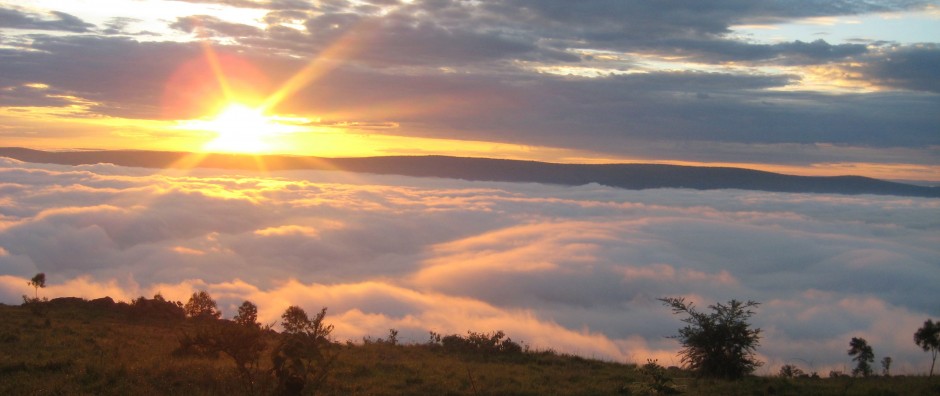It wasn’t until I was talking with my dad the other night that I realized I had yet to blog about my water situation here, which is an experience worth conveying, though it is such a Western problem that I feel a little silly discussing it: life for many people in Tanzania consists of carrying water for unimaginable distances every day, and in my whole time here I have only carried water a semi-substantial distance once.
In any case, the narrative: when I arrived, I had a tap in my bathroom that would run every few days or so for a few hours, either in the morning or the afternoon. While I occasionally got really low on water, I was never in dire need. This changed towards the end of November, when water completely ceased running from this tap
We (my roommate and I) had always been careful with the water, but this brought us to a completely new level of care. We had to pay people 200 shillings a bucket (6 gallons?) to carry water from elsewhere in the compound, as other outside taps still ran in the morning for a couple hours. We began to use leftover clothes washing water for flushing the toilet, and tried to conserve water in every way possible. We left for our winter break hoping our water troubles would be resolved when we returned.
No such luck. As they say, TIA (this is Africa). This situation continued for a couple weeks (and we purchased more water containers to increase the time we could go without water), until one day there was no power. Outages are very common here, and it’s not uncommon to have a short outage in the evening, during the rain, or even for a few days. This power outage lasted nearly a week, which was the longest we’d gone without electricity (barely, we had a couple five day outages previously). This outage was a little different, and was caused by TANESCO (the Tanzanian electricity company) running out of natural gas, which is how Ngara district is powered. As a result, all the pumps stopped working, many people in Ngara did not have water (nobody had electricity unless they had a generator).
This was a dire situation, and we were down to no water at all, when our neighbor, the District Education Officer (the Tanzanian equivalent of a Superintendent of a very large school district), arranged a car from his work to drive all our buckets to his office, where for some reason the pump was working. This was a long undertaking, and involved the hauling of some very large buckets. It was also very Tanzanian. One evening he came by and said, “Mr Alex, are you ready to go?” “Go where?” I asked. “To get water,” he responded. We left a minute later. When we were there he said, “Mr. Alex, you now know what it is like to be African.”
Eventually, the electricity returned, but the water did not. A week later (and another couple trips to the DEO’s office) I asked why the water had not returned, and got two different answers from the DEO and his wife. The DEO said the pump was broken, and his wife said that the water company had shut off water to the whole compound because nobody had paid their bills. So, really, I have no idea why we don’t have water, but we don’t.
About another week later (and a couple expensive water haulers who carried water from about a 20 minute walk away), one of the pipes that carries water into the compound was broken open by someone. Now, every morning from about 6-8 (or 9), this pipe sprays water all over the ground (as though it was leaking) and people collect water from this leak. Last Saturday, in dire need of water, I walked over (about a five minute walk from my house) at 6:30 before a line developed, and carried back around 7-8 gallons of water. It was awful, and it was only five minutes.
I have no idea how people carry 6 gallons on their heads. In many places, people carry water up to 5 kilometers (and more than that, in some places). Even the students at my school carry water from about 4-5 kilometers away. The craziest thing about this is that before the popularization of the lightweight plastic water bucket people (women mostly) carried water in heavy clay containers. Imagine that.
